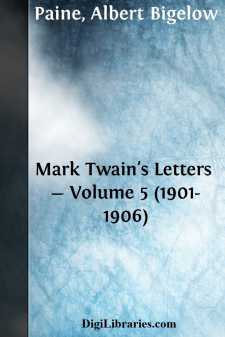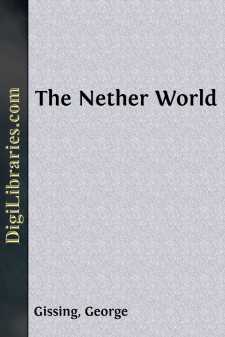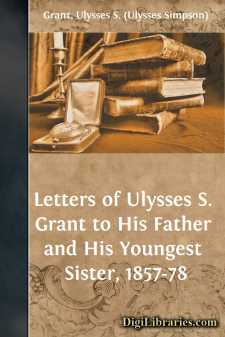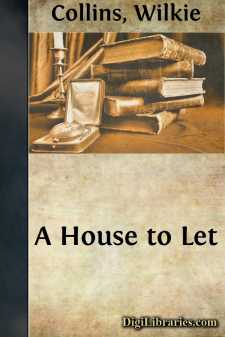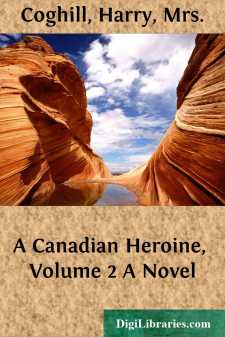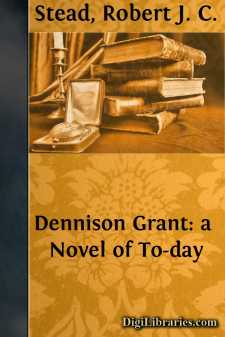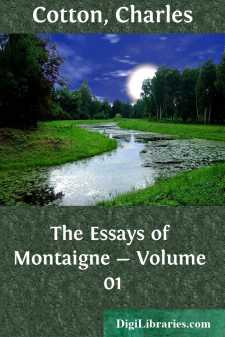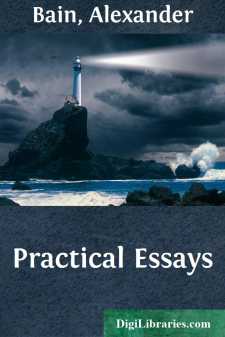Literary Collections
- American 84
- Ancient, Classical & Medieval 14
- Asian 1
- Australian & Oceanian 1
- Canadian 55
- Continental European 121
- English, Irish, Scottish, Welsh 179
- Essays 160
- General 24
- Letters 46
- Middle Eastern 1
Literary Collections Books
Sort by:
An editorial in the Louisville Courier-Journal, early in 1901, said:"A remarkable transformation, or rather a development, has takenplace in Mark Twain. The genial humorist of the earlier day is nowa reformer of the vigorous kind, a sort of knight errant who doesnot hesitate to break a lance with either Church or State if hethinks them interposing on that broad highway over which he believesnot a...
more...
by:
Kuno Francke
THE LIFE OF JEAN PAUL By BENJAMIN W. WELLS, Ph.D. Author of Modern German Literature. "The Spring and I came into the world together," Jean Paul liked to tell his friends when in later days of comfort and fame he looked back on his early years. He was, in fact, born on the first day (March 21) and at almost the first hour of the Spring of 1763 at Wunsiedel in the Fichtelgebirge, the very heart...
more...
by:
George Gissing
CHAPTER I In the troubled twilight of a March evening ten years ago, an old man, whose equipment and bearing suggested that he was fresh from travel, walked slowly across Clerkenwell Green, and by the graveyard of St. James's Church stood for a moment looking about him. His age could not be far from seventy, but, despite the stoop of his shoulders, he gave little sign of failing under the burden...
more...
Letters of Ulysses S. Grant [In 1843, at the age of twenty-one, Ulysses S. Grant was graduated from West Point with the rank of brevet second lieutenant. He was appointed to the 4th Infantry, stationed at Jefferson Barracks near St. Louis. In May, 1844, he was ordered to the frontier of Louisiana with the army of observation, while the annexation of Texas was pending. The bill for the annexation of...
more...
by:
Wilkie Collins
OVER THE WAY I had been living at Tunbridge Wells and nowhere else, going on for ten years, when my medical man—very clever in his profession, and the prettiest player I ever saw in my life of a hand at Long Whist, which was a noble and a princely game before Short was heard of—said to me, one day, as he sat feeling my pulse on the actual sofa which my poor dear sister Jane worked before her spine...
more...
by:
Harry Coghill
CHAPTER I. Mrs. Costello had felt it a kind of reprieve when she heard from Mr. Strafford that they might delay their journey safely for a month. The sober middle age which had come upon her before its time, as her life rolled on out of the anguish and tumult of the past, made home and quietness the most desirable things on earth to her, and her health and spirits, neither yet absolutely broken, but...
more...
CHAPTER I "Chuck at the Y.D. to-night, and a bed under the shingles," shouted Transley, waving to the procession to be off. Linder, foreman and head teamster, straightened up from the half load of new hay in which he had been awaiting the final word, tightened the lines, made an unique sound in his throat, and the horses pressed their shoulders into the collars. Linder glanced back to see each...
more...
by:
Charles Cotton
PREFACE. The present publication is intended to supply a recognised deficiency in our literature—a library edition of the Essays of Montaigne. This great French writer deserves to be regarded as a classic, not only in the land of his birth, but in all countries and in all literatures. His Essays, which are at once the most celebrated and the most permanent of his productions, form a magazine out of...
more...
by:
Alexander Bain
I. On the prevailing errors on the mind, proposed to be considered in this paper, some relate to the Feelings, others to the Will. In regard to Mind as a whole, there are still to be found among us some remnants of a mistake, once universally prevalent and deeply rooted, namely, the opinion that mind is not only a different fact from body—which is true, and a vital and fundamental truth —but is to...
more...
THE LIFE OF HEINRICH HEINE BY WILLIAM GUILD HOWARD, A.M.Assistant Professor of German, Harvard University I. The history of German literature makes mention of few men more self-centered and at the same time more unreserved than Heinrich Heine. It may be said that everything which Heine wrote gives us, and was intended to give us, first of all some new impression of the writer; so that after a perusal...
more...


